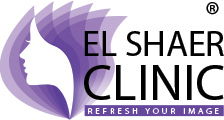- Refresh Your Image
- +2 015 504 33 1 55
- info@elshaerclinic.com
What Is The Difference Between Factoring And Accounts Receivable Financing?
Content
In addition, if you do have a long-term agreement, you will need to refer to the contract and any addendums to know when you are eligible to terminate your agreement. Sooner or later, your growing company is going to need more cash than it currently has on hand. The most important thing is to make sure you understand exactly what you will be charged. MP Star Financial doesn’t hide fees or surprise you with unexpected charges.
Click to learn more about Even’s Licenses and Disclosures, Terms of Service, and Privacy Policy. SoFi Lending Corp. (“SoFi”) operates this Personal Loan product in cooperation with Even Financial Corp. (“Even”). The lenders/partners receiving your information will also obtain your credit information from a credit reporting agency.
Accounts Receivable Factoring Vs Traditional Operating Line Of Credit
Many accounts receivable financing companies link directly with a company’s accounts receivable records to provide fast and easy capital for accounts receivable balances. Accounts receivable financing is a type of financing arrangement in which a company receives financing capital related to a portion of its accounts receivable. Accounts receivable financing agreements can be structured in multiple ways usually with the basis as either an asset sale or a loan.
- Invoices are still approved on an individual basis, but most invoices can be funded in a business day or two, as long as they meet the factor’s criteria.
- A standard factoring agreement details the sale or “purchase” of the business’ accounts receivables or invoices in return for short-term capital to help fund the client’s business.
- The factor purchases your uncollected construction invoices, applies a discount factor and pays you the difference, often in less than 10 days.
- The most obvious benefit of factoring receivables is not waiting for your customers to pay you.
- This monitoring limits the chances they will finance a risky invoice.
An AR Facility can provide predictable working capital, enable expansion, and can improve payables cycle, often resulting in vendor early payment discounts and preferred pricing. Trade Credit Insurance is a risk management product offered to business entities wishing to protect their balance sheet assets from loss due to credit risks such as protracted default, insolvency, and bankruptcy.
Funding Network
Getting terms is advantageous for your clients because it helps them with their cash flow. The client gets to use your product/service for a month or two before paying. When a nonrecourse transaction takes place, the accounts receivable balance is removed from the statement of financial position. The corresponding debits include the expense recorded on the income statement and the proceeds received from the factor. Spot factoring, or single invoice discounting, is an alternative to “whole ledger” and allows a company to factor a single invoice.
An assignment of accounts receivable is a lending agreement whereby the borrower assigns accounts receivable to the lending institution. Accounts Receivable Factoring refers to the selling of an account receivable at a discount in order to get immediate cash. Rieva is a small-business contributor for Fundbox and CEO of GrowBiz Media, a media company focusing on small business and entrepreneurship. She has spent 30+ years covering, consulting, and speaking to small businesses owners and entrepreneurs. Transfer without recourse means that the Factor assumes all of the risks attached to the invoices including the risk of the invoices defaulting.
Factoring
In addition, we provided collection services for you, which frees up your time and resources to do more important things. Fundbox offers accounts receivable financing at a reasonable rate of 4.66% for a 12-week repayment plan. There isn’t a minimum amount needed to be approved, and each week your payment to Fundbox includes the small fee. Factors with a competent credit team can help your business deal with customers with poor payment histories.
Although the discount in the face value of the accounts receivable is a cost, companies benefit in converting their accounts receivable to immediate cash, and their accounts receivable are typically sold without recourse. Factoring accounts receivable is an ideal solution for small businesses who are exporting overseas and offering financing terms to your foreign buyers. We provide you with an immediate influx of cash from the invoices that are already on your books or which will be created upon the export of goods to your foreign buyer. You access cash immediately without having to wait for payment from overseas buyers and without any exposure to payment default. Invoice factoring is a method of small business financing whereby a factoring company (or “factor”) purchases a business’ invoices, providing immediate funding to that company. Subsequently, the small business’ customers remit payment for those invoices directly to the factoring company.
Some of your clients may make better candidates for recourse factoring than others. Companies also choose to factor when their customers require extended payment terms. By not providing extended payment terms, a contract, sale or customer relationship can be lost.
Shrm Calls Ichra The 401k For Group Health Benefits
Receipt of the cash for factored invoices will result in a balance sheet affect reducing the AR balance by the amount of the factored invoices. Once the invoice is paid, the accounts receivable factoring company will send you a rebate of any invoice amount previously unpaid minus a small factoring fee. A factor is a company offering accounts receivable factoring services for small business financing. A broker matches clients in need of funding with appropriate finance providers such as accounts receivable factoring companies.
- We can help companies in most industries as we will look at your individual circumstances and try to find a solution for you.
- Since the factoring company now controls your invoices, you may find the factor has too much influence on what customers you are allowed to do business with in the future.
- Most commercial sales of products and services happen on credit terms.
- Not every factoring company will take on your debt and collect your accounts receivables for you.
Other lenders reserve the right to “recourse” on bad debt, meaning if your client does not pay, they will ask you to repurchase the invoice. The lines can get a bit blurry here, so make sure to check the fine print. Many include high interest rates, fees, late fees, and other hidden tricks that turn what appears to be a simple https://www.bookstime.com/ financial service into a very expensive one. MP Star Financial offers One Fee Factoring®, and a no-hidden-fees guarantee. We have a long history of maintaining long-term relationships with our clients, supporting their growth and providing financial solutions with a high level of transactional transparency and service.
Invoice Payers Debtors
Often, non-recourse factoring is only applied if the invoiced company files bankruptcy. In addition, fees for non-recourse factoring are much higher than those for non-recourse factoring. A bank line of credit is a source of funding extended to a company to help meet its liquidity needs. After approval of a certain amount of credit, it can be tapped at the company’s discretion. Interest is paid only on the funds actually borrowed, although some banks charge fees to establish the credit line and may also require you to pay an annualized fee on money not withdrawn.
“Accounts receivable financing” is a term often used interchangeably with “accounts receivable factoring.” It refers to the use of accounts receivable factoring services as a form of small business financing. Companies like Fundbox, offer accounts receivable loans and lines of credit based on accounts receivable balances. If approved, Fundbox can advance 100% of an accounts receivable balance. A business must then repay the balance over time, usually with some interest and fees. As such, both internally and externally, accounts receivable are considered highly liquid assets which translate to theoretical value for lenders and financiers. Many companies may see accounts receivable as a burden since the assets are expected to be paid but require collections and can’t be converted to cash immediately. As such, the business of accounts receivable financing is rapidly evolving because of these liquidity and business issues.
Volatility in the current business climate has finance executives performing stress tests on cash forecasting. What happens if 20 or 30 percent of a company’s receivables aren’t getting paid? Even prior to the global health crisis, 78 percent of accounts payable departments admitted to paying invoices late.
The discount rate is the fee a factoring company charges to provide the factoring service. Since a formal factoring transaction involves the outright purchase of the invoice, the discount rate is typically stated as a percentage of the face value of the invoices. For instance, a factoring company may charge 5% for an invoice due in 45 days. In contrast, companies that do accounts receivable financing may charge per week or per month.
- If you struggle to cover expenses while awaiting client payments, accounts receivable financing may be for you.
- Accounts Receivable Factoring provides just that—knowing the advantages and considerations are key to leveraging your B2B invoices.
- In accounts receivable factoring services, “accounts receivable” are the monies owed to small businesses by their customers.
- In the UK the arrangement is usually confidential in that the debtor is not notified of the assignment of the receivable and the seller of the receivable collects the debt on behalf of the factor.
- If your business is unable to obtain bank financing but generates quality accounts receivables, receivable funding can be an ideal temporary solution to solve your daily working capital needs.
This document will list each individual invoice that needs to be factored. It will have details such as the customer name, invoice number, date, amount, and corresponding purchase order or reference number of the customer.
Do I Qualify For Factoring?
Customers are to be notified of this by a Notification of Assignment letter which will also contain the new payment instructions. Invoices sent by the borrower to their customers will be required to contain the new payment instructions as well. Early payment discounts have drawbacks and aren’t always reliable, especially during difficult times.
Apply the discount fee to the amount of funds advanced to the borrower. In other words, the nonrecourse factor who assumes credit risk bears the credit loss and incurs bad debt if a purchased account does not collect due solely to financial inability of the account debtor to pay.
Information about insurance is provided on Lantern by SoFi Life Insurance Agency, LLC. Click here to view our licenses. Alternately, Capital Partners Network can help, providing you the experience and expertise to help better identify your particular requirements and matching your business with the right lender.
Cash In Advance
Invoices are still approved on an individual basis, but most invoices can be funded in a business day or two, as long as they meet the factor’s criteria. The first part is the “advance” Accounts Receivable Factoring and covers 80% to 85% of the invoice value. The remaining 15% to 20% is rebated, less the factoring fees, as soon as the invoice is paid in full to the factoring company.
When looking for a factoring company, it is important to research several competent factoring firms and compare their terms. This is an important step to take regardless of whether you are looking for recourse or non-recourse factoring. Consider working with a factor that provides both types of factoring.

